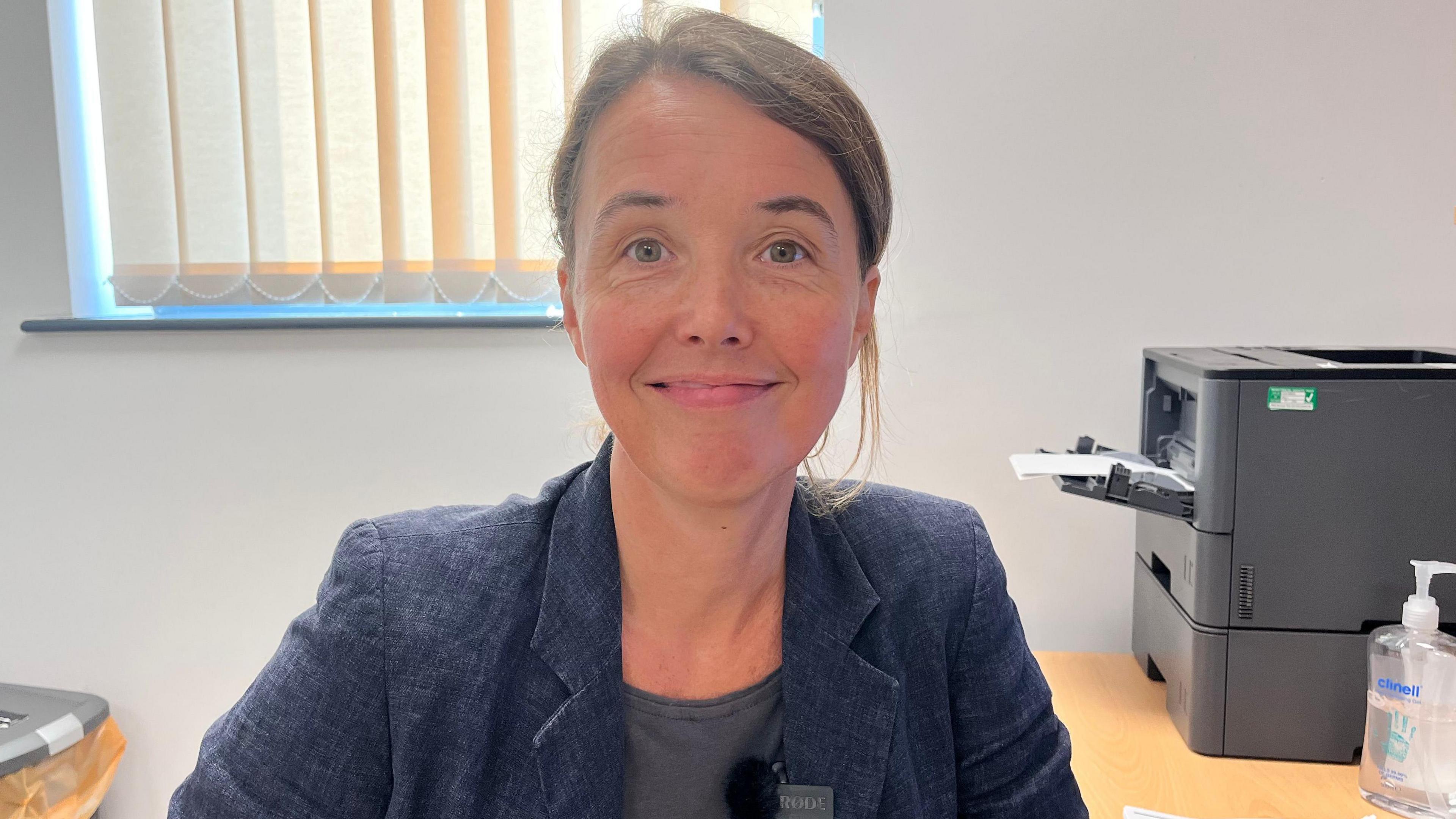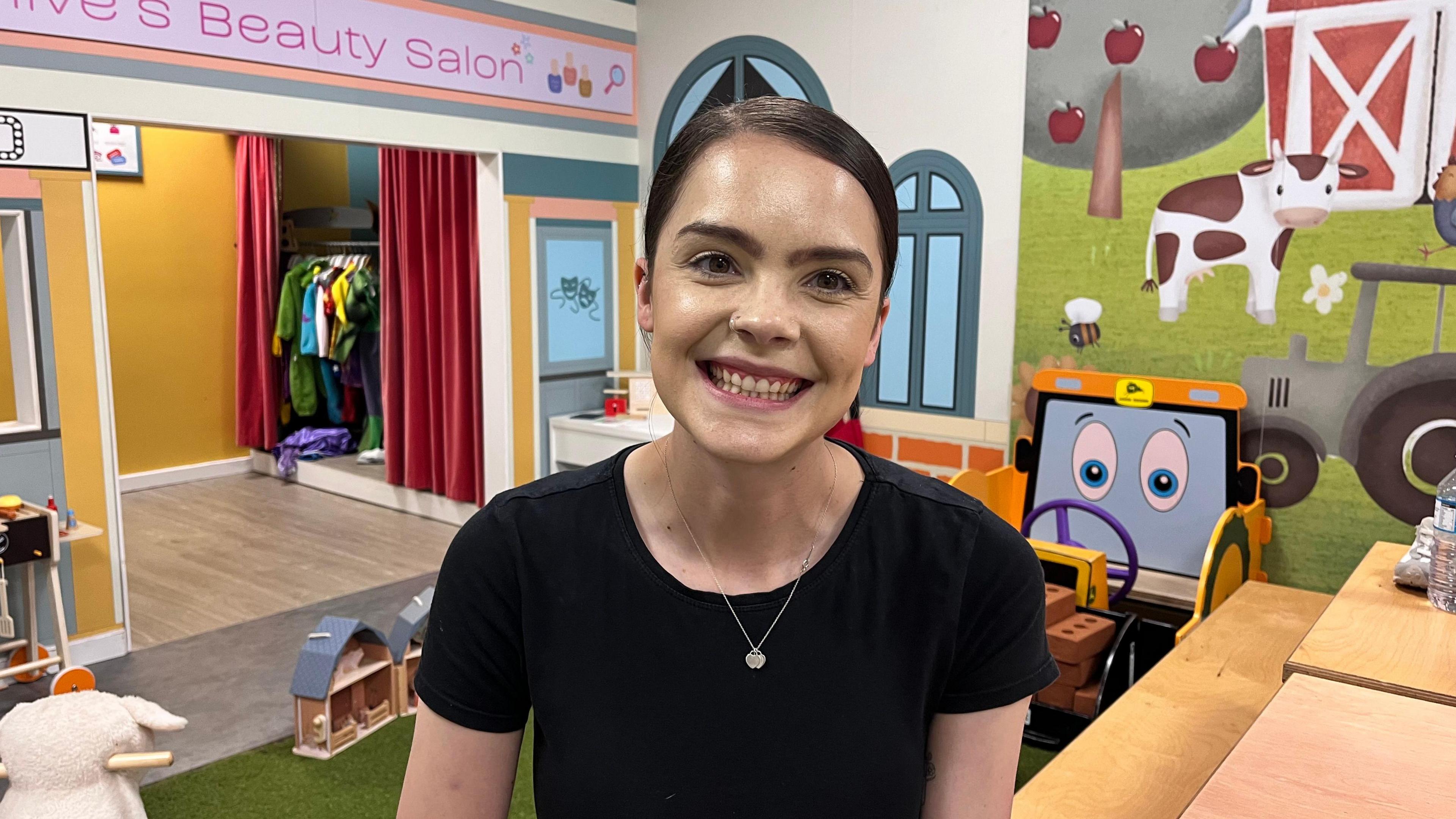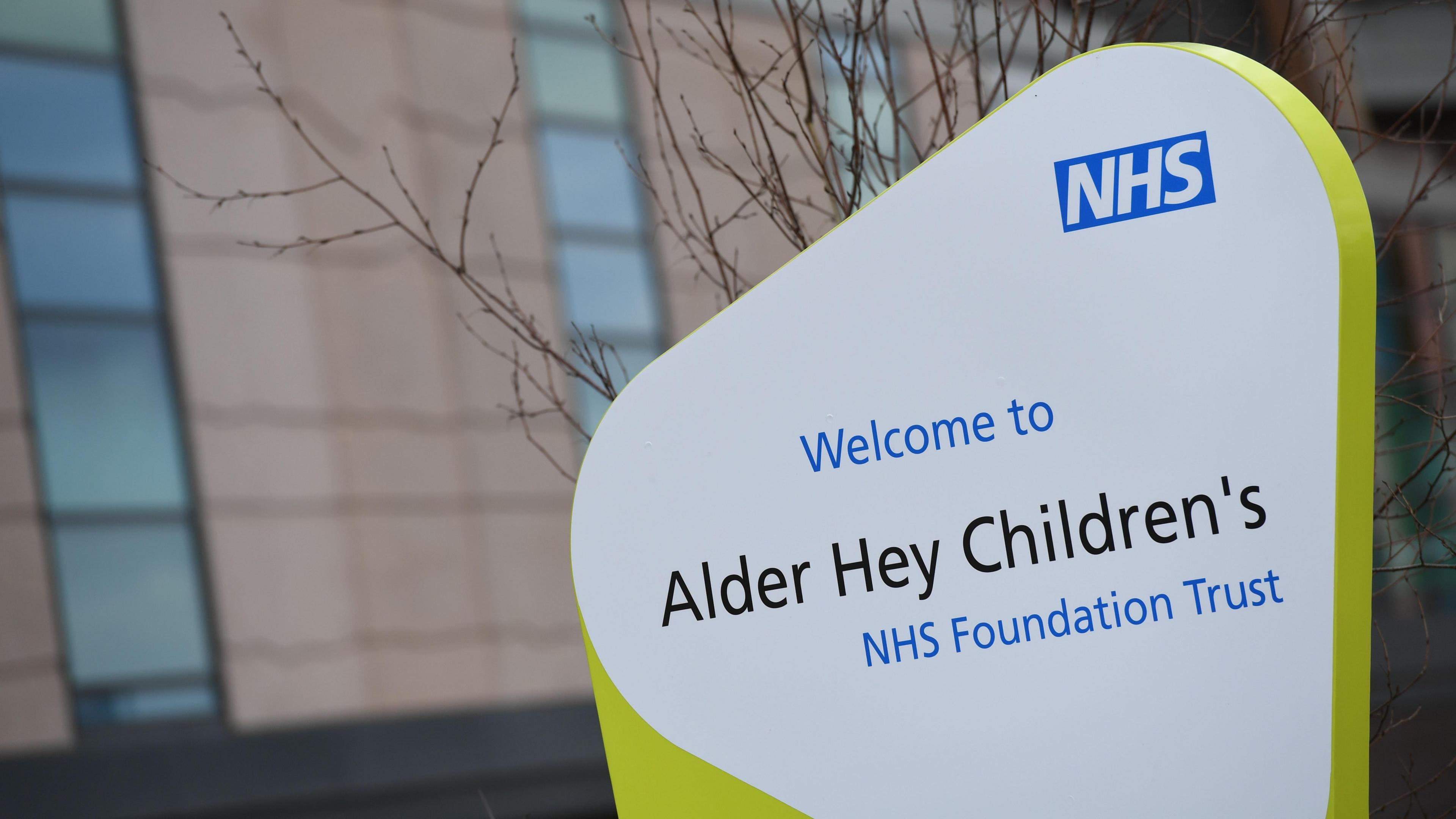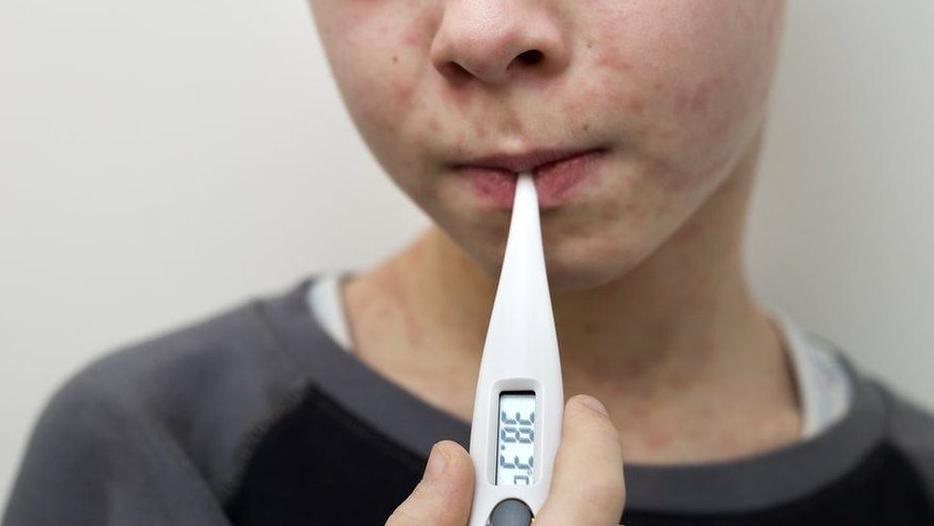'We have forgotten how serious measles can be'

Lincolnshire GP Dr Nathalie Dukes says information overload is one of the reasons behind a drop in the uptake of measles vaccinations
- Published
Health officials are urging parents in East Yorkshire and Lincolnshire to check their children are fully vaccinated against measles.
NHS figures reveal uptake of the measles, mumps and rubella (MMR) jab has fallen across the two regions.
Grimsby GP Dr Nathalie Dukes said: "The evidence is clear that the increase in the number of people who are getting infected is coinciding with the rates of vaccination dropping."
Dr Dukes said she believed one of the reasons behind the fall in vaccination numbers is that people have "forgotten how serious conditions like measles can be".
She said: "We have come to the luxurious position where up until recently these conditions were not really around anymore.
"We didn't see many cases so it was out of our remit of relevance to a degree.
"Information overload is another factor. I think people have got a bit vaccine fatigue since Covid in terms of being told what to do and in terms of concerns, so people have maybe taken that to childhood vaccinations as well."
Measles is a highly contagious disease spread when an infected person breathes, coughs or sneezes and it can lead to serious and potentially life-threatening complications in some people, including infections of the lungs and brain.
The target set by the World Health Organisation to prevent the spread of measles through herd immunity is a 95% overall vaccination rate.
Latest NHS figures show 83% of children received their second dose of the MMR vaccine by the age of five in North Lincolnshire and Hull in 2023/24 - down from 91% in 2013/14.
Uptake is also 83% in Lincolnshire - 4% lower than 10 years ago, while rates have also dropped by 4% to 91% in North East Lincolnshire.
In 2024, there were more than 2,900 confirmed measles cases in England - the highest number of cases recorded annually since 2012.
Since the beginning of this year, there have been 529 confirmed cases reported in England, according to figures by the UK Health Security Agency.
In July, a child died at Liverpool's Alder Hey Children's Hospital after contracting the disease.
Birmingham experienced an outbreak, with government figures showing 26 confirmed cases between January and June, while Bristol had recorded the most cases to date outside London with 11% of the national total.

Hull mum Lily Kemp, whose two young boys have both had the MMR vaccine, says it is important parents protect their children, and others
Speaking at a children's play centre in Hull, mum-of-two Lily Kemp said it was important to make sure children were fully vaccinated against infections, such as measles.
She said: "I think social media doesn't help because people share their experiences and some might comment on the short-term effects rather than the long-term benefits of what they're protecting against if they get vaccinated."
A joint statement from the NHS Humber and North Yorkshire Integrated Care Board and Hull City Council said: "While the majority of children are protected, there remain pockets of low uptake that increase the risk of measles outbreaks.
"Vaccination remains the best protection against measles, mumps and rubella.
"We urge all parents and carers to check their child's Red Book or contact their GP if they are unsure whether their child is up to date."
Listen to highlights from Lincolnshire on BBC Sounds, watch the latest episode of Look North or tell us about a story you think we should be covering here, external.
Download the BBC News app from the App Store, external for iPhone and iPad or Google Play, external for Android devices
Related topics
Related internet stories
- Published6 June

- Published13 July

- Published16 July
